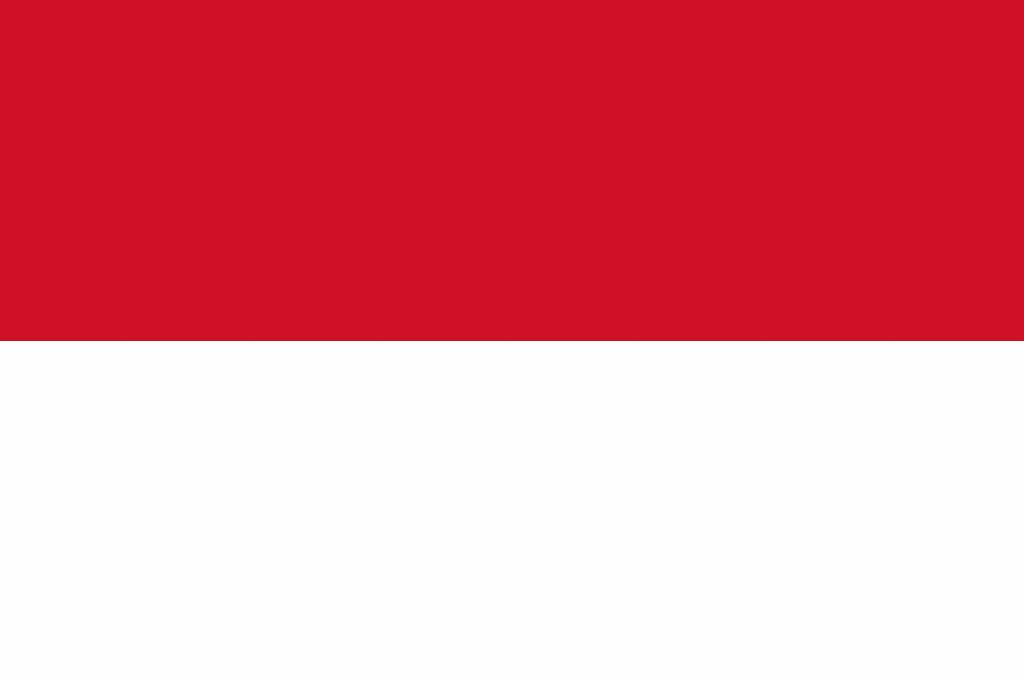Jun 1, 2025
How Is Alternative Data Helping Expand the Scope for MSME Lending
How Is Alternative Data Helping Expand the Scope for MSME Lending
How Is Alternative Data Helping Expand the Scope for MSME Lending
Without adequate credit, MSMEs are unable to grow, innovate, or scale, leading to a 3% GDP growth loss annually in countries like India. Here's how fintech platforms and digital lending solutions can democratize access to credit for MSMEs by upgrading their existing credit risk models using alternative data.
Author
Rahi Bhattacharjee




TABLE OF CONTENTS
See Less
In developing nations, medium and small businesses are crucial to a well-functioning social and economic structure. Millions get their daily bread and butter from these types of employment. Unfortunately, the margins of wealth for MSMEs compared to large-scale businesses have always been difficult. With better access to financial resources, SMEs can invest in new technologies, expand their product lines, and enter new markets. Moreover, financially healthy SMEs are better equipped to handle economic downturns or unexpected expenses. A healthy financial cushion allows them to weather storms without compromising their core operations or workforce.
However, accessing financial resources like credit has always been a challenge for MSMEs. Here’s why:
Why do MSMEs continue to be invisible for credit access?
Lack of formal financial histories
Many MSMEs, especially smaller ones, lack detailed balance sheets, income statements, or formal credit histories, making it difficult for banks to assess their creditworthiness. Imagine your neighborhood small grocery store or the “kirana stores” in India. Not only are the majority of their transactions in cash, but keeping a record of every minute transaction is not feasible.
High default risk perception
MSMEs are often seen as high-risk borrowers due to their vulnerability to market fluctuations, lack of collateral, and inconsistent cash flows.
Cash flow gaps
MSMEs typically operate with irregular cash flow cycles, leading to periods where they might struggle to make payments, which makes traditional lenders hesitant to offer loans.
Gender barriers
Women-owned MSMEs often face additional challenges, including gender biases in lending decisions and limited access to financial networks. Closing the gender gap in MSME lending could unleash significant economic potential, with women-owned businesses accounting for over 20% of all MSMEs in emerging markets. Tailoring financial products for women entrepreneurs could bridge this gap and lead to substantial economic growth.
Related read: Unlocking financial access for underprivileged communities through alternative data
Addressable market
MSME Contribution: MSMEs contribute about 30% of India's GDP and employ 111 million people. Globally, MSMEs account for 90% of businesses and 50% of employment in developing economies.
Potential Credit Market: In India, the estimated credit gap for MSMEs is ₹25 trillion ($300 billion USD) in 2024, while globally, this gap reaches over $5 trillion USD.
Opportunity missed
Economic Loss: Without adequate credit, MSMEs are unable to grow, innovate, or scale, leading to a 3% GDP growth loss annually in countries like India. In 2024, this results in a missed opportunity of ₹12 trillion ($144 billion USD) in economic output.
Many governments are implementing policies and initiatives to support MSMEs, such as India’s Emergency Credit Line Guarantee Scheme (ECLGS).
These programs aim to reduce risk for lenders, making it easier for MSMEs to access credit. You also have other important measures taken by the Indian government like the Credit Guarantee Fund Trust for Micro and Small Enterprises (CGTMSE), Pradhan Mantri MUDRA Yojana (PMMY), Prime Minister's Employment Generation Programme (PMEGP), Interest Subsidy Eligibility Certificate (ISEC) or Credit Linked Capital Subsidy for Technology Upgradation (CLCS-TU)!
However, the challenge remains that many MSMEs are unaware of or unable to access these resources.
How Bureau’s Alternative Data Suite can help bridge the gap
Fintech platforms and digital lending solutions can take support from identity decisioning platforms like Bureau to democratize access to credit for MSMEs by upgrading their existing credit risk models using alternative data.
For example, here are the unique inputs that Bureau analyzes to gauge the creditworthiness of a small business:
Supplier Payment Data
Bureau’s suite can analyze transaction records between MSMEs and their suppliers, offering a clearer view of the company’s financial health and reliability, even in the absence of formal financial statements.
Digital Invoicing Data
Alternative data from e-invoices, online sales platforms, and digital payment gateways can be used to track cash flows and build credit profiles for MSMEs, making them more attractive to lenders.
Real-Time Financial Monitoring
By providing real-time insights into MSME financial behavior (e.g., frequency of supplier payments, employee salaries), Bureau’s suite can help lenders mitigate the perceived risk of default and offer customized lending solutions based on dynamic financial data.
Unsecured loans but safely
Traditional lending often requires collateral, which many MSMEs, especially smaller or newer businesses, cannot provide. Collateral-free lending models, such as unsecured business loans, are emerging as viable solutions. Lenders can assess risk based on cash flow, digital payment records, or supplier payment histories rather than relying on physical assets, making credit more accessible to a broader range of MSMEs
Fintech firms can offer tailored lending solutions faster than traditional banks by leveraging alternative data, machine learning algorithms, and digital payment histories. These platforms reduce bureaucratic hurdles and can be particularly effective for MSMEs operating without formal financial histories.
Schedule a free consultation with us to know more.

In developing nations, medium and small businesses are crucial to a well-functioning social and economic structure. Millions get their daily bread and butter from these types of employment. Unfortunately, the margins of wealth for MSMEs compared to large-scale businesses have always been difficult. With better access to financial resources, SMEs can invest in new technologies, expand their product lines, and enter new markets. Moreover, financially healthy SMEs are better equipped to handle economic downturns or unexpected expenses. A healthy financial cushion allows them to weather storms without compromising their core operations or workforce.
However, accessing financial resources like credit has always been a challenge for MSMEs. Here’s why:
Why do MSMEs continue to be invisible for credit access?
Lack of formal financial histories
Many MSMEs, especially smaller ones, lack detailed balance sheets, income statements, or formal credit histories, making it difficult for banks to assess their creditworthiness. Imagine your neighborhood small grocery store or the “kirana stores” in India. Not only are the majority of their transactions in cash, but keeping a record of every minute transaction is not feasible.
High default risk perception
MSMEs are often seen as high-risk borrowers due to their vulnerability to market fluctuations, lack of collateral, and inconsistent cash flows.
Cash flow gaps
MSMEs typically operate with irregular cash flow cycles, leading to periods where they might struggle to make payments, which makes traditional lenders hesitant to offer loans.
Gender barriers
Women-owned MSMEs often face additional challenges, including gender biases in lending decisions and limited access to financial networks. Closing the gender gap in MSME lending could unleash significant economic potential, with women-owned businesses accounting for over 20% of all MSMEs in emerging markets. Tailoring financial products for women entrepreneurs could bridge this gap and lead to substantial economic growth.
Related read: Unlocking financial access for underprivileged communities through alternative data
Addressable market
MSME Contribution: MSMEs contribute about 30% of India's GDP and employ 111 million people. Globally, MSMEs account for 90% of businesses and 50% of employment in developing economies.
Potential Credit Market: In India, the estimated credit gap for MSMEs is ₹25 trillion ($300 billion USD) in 2024, while globally, this gap reaches over $5 trillion USD.
Opportunity missed
Economic Loss: Without adequate credit, MSMEs are unable to grow, innovate, or scale, leading to a 3% GDP growth loss annually in countries like India. In 2024, this results in a missed opportunity of ₹12 trillion ($144 billion USD) in economic output.
Many governments are implementing policies and initiatives to support MSMEs, such as India’s Emergency Credit Line Guarantee Scheme (ECLGS).
These programs aim to reduce risk for lenders, making it easier for MSMEs to access credit. You also have other important measures taken by the Indian government like the Credit Guarantee Fund Trust for Micro and Small Enterprises (CGTMSE), Pradhan Mantri MUDRA Yojana (PMMY), Prime Minister's Employment Generation Programme (PMEGP), Interest Subsidy Eligibility Certificate (ISEC) or Credit Linked Capital Subsidy for Technology Upgradation (CLCS-TU)!
However, the challenge remains that many MSMEs are unaware of or unable to access these resources.
How Bureau’s Alternative Data Suite can help bridge the gap
Fintech platforms and digital lending solutions can take support from identity decisioning platforms like Bureau to democratize access to credit for MSMEs by upgrading their existing credit risk models using alternative data.
For example, here are the unique inputs that Bureau analyzes to gauge the creditworthiness of a small business:
Supplier Payment Data
Bureau’s suite can analyze transaction records between MSMEs and their suppliers, offering a clearer view of the company’s financial health and reliability, even in the absence of formal financial statements.
Digital Invoicing Data
Alternative data from e-invoices, online sales platforms, and digital payment gateways can be used to track cash flows and build credit profiles for MSMEs, making them more attractive to lenders.
Real-Time Financial Monitoring
By providing real-time insights into MSME financial behavior (e.g., frequency of supplier payments, employee salaries), Bureau’s suite can help lenders mitigate the perceived risk of default and offer customized lending solutions based on dynamic financial data.
Unsecured loans but safely
Traditional lending often requires collateral, which many MSMEs, especially smaller or newer businesses, cannot provide. Collateral-free lending models, such as unsecured business loans, are emerging as viable solutions. Lenders can assess risk based on cash flow, digital payment records, or supplier payment histories rather than relying on physical assets, making credit more accessible to a broader range of MSMEs
Fintech firms can offer tailored lending solutions faster than traditional banks by leveraging alternative data, machine learning algorithms, and digital payment histories. These platforms reduce bureaucratic hurdles and can be particularly effective for MSMEs operating without formal financial histories.
Schedule a free consultation with us to know more.

TABLE OF CONTENTS
See More
TABLE OF CONTENTS
See More
Recommended Blogs

Building Real-time Defenses in an Always-on Economy
In an always-on, connected economy, risks are created in real-time, rather than at discrete checkpoints. Defense strategies must, accordingly, level up to measure trust throughout the entire user experience, from first interaction to every single transaction. This always-on protection needs connected signals, adaptive decisioning, and protection that can keep pace with evolving digital behaviors and access methods.

iGaming KYC: Balancing Risk, Compliance, and Player Experience
KYC-driven identity verification is a core element for fraud prevention in iGaming. It helps these platforms establish trust at onboarding by creating a secure, fair, and sustainable ecosystem, preventing abuse, preserving integrity of the platform, and ensuring regulatory compliance.

How Device Intelligence Adapts to Global Data Sovereignty
Global data sovereignty laws are forcing financial institutions to rethink device intelligence, redesign fraud architecture, and operate compliant, real-time risk systems across increasingly fragmented regulatory environments. What this means in practice is a fundamental shift in how businesses design, deploy, and govern fraud systems across regions.
TABLE OF CONTENTS
See Less
TABLE OF CONTENTS
See Less



Solutions
Resources
© 2026 Bureau . All rights reserved.
Solutions
Solutions
Industries
Industries
Resources
Resources
Company
Company
Solutions
Solutions
Industries
Industries
Resources
Resources
Company
Company
© 2025 Bureau . All rights reserved. Privacy Policy. Terms of Service.
© 2025 Bureau . All rights reserved.
Privacy Policy. Terms of Service.
Follow Us
Leave behind fragmented tools. Stop fraud rings, cut false declines, and deliver secure digital journeys at scale
Our Presence
















Leave behind fragmented tools. Stop fraud rings, cut false declines, and deliver secure digital journeys at scale
Our Presence

















